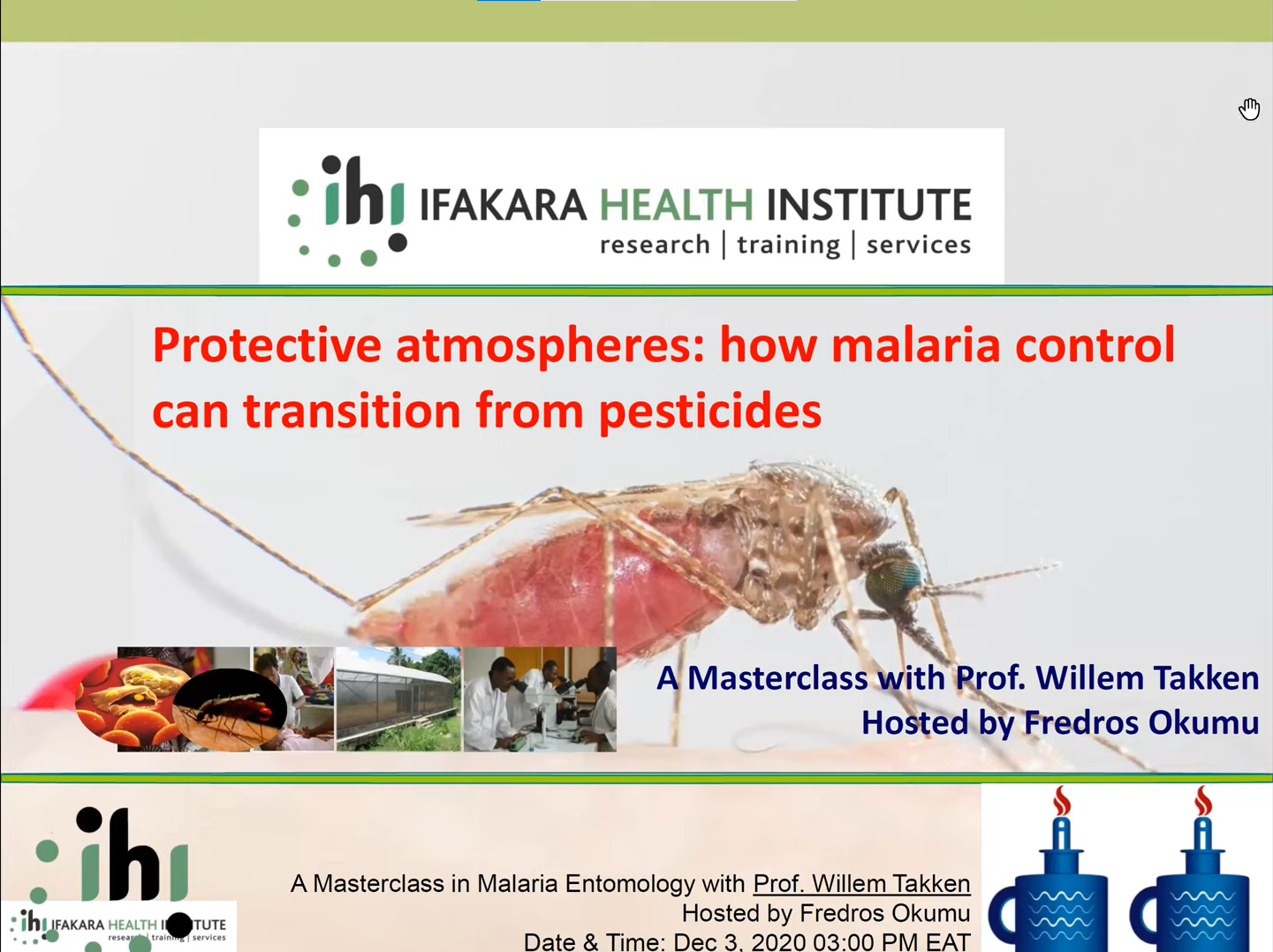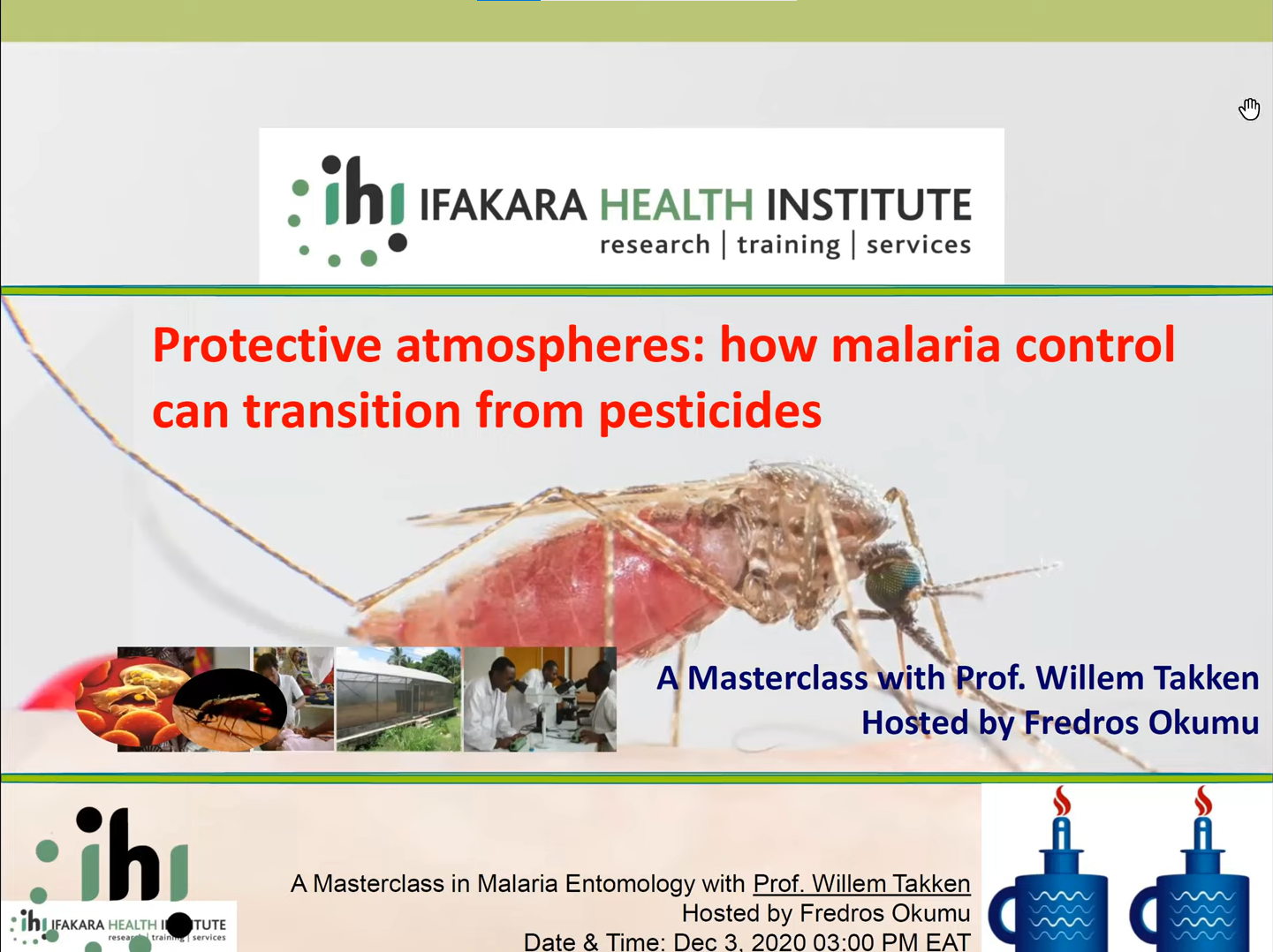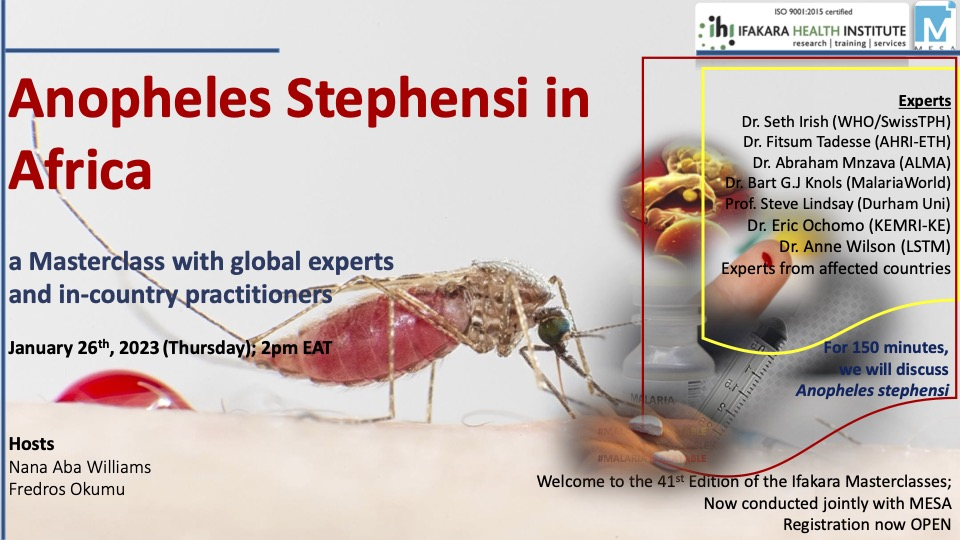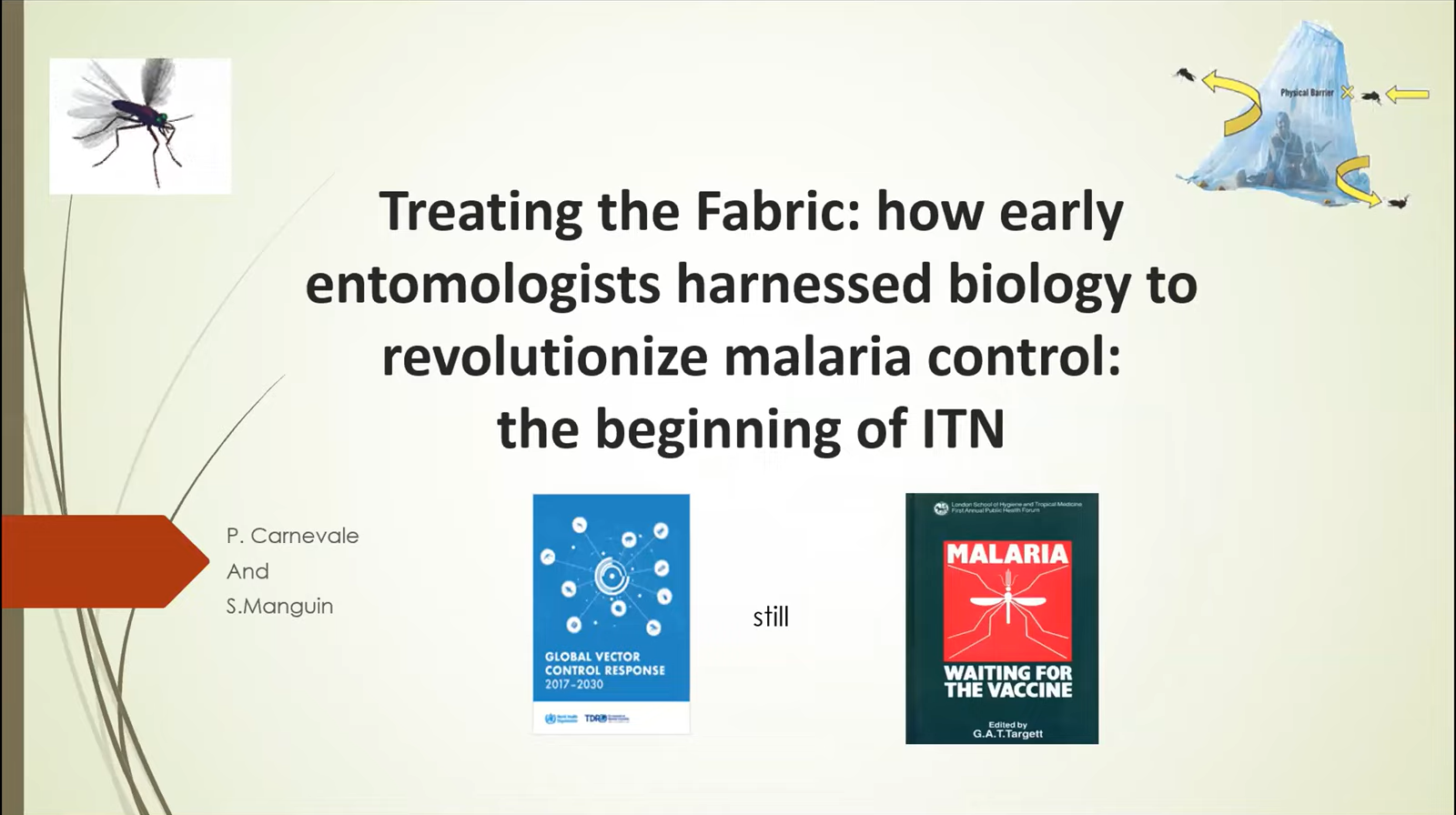Ifakara Masterclass Edition 3- Protective atmospheres how malaria control can transition from pesticides: A MasterClass with Prof. Willem Takken (Part 2)
Collaborator(s): Wageningen University, The Netherlands
Published: 03/12/2022
Protective atmospheres: how malaria control can transition from pesticides
The 3rd edition of the masterclass hosted by Fredros Okumu from Ifakara Health Institute (IHI) and features Prof. Willem Takken who has had several positions at WHO, FAO/IAEA and USDA-ARS for which he worked and lived in Nigeria, Mozambique and the USA. Exploiting the behavioral and chemical ecology of African malaria vectors has been his main research interest, and he used this knowledge to implement Integrated Vector Management strategies for sustainable control of disease vectors.
In this session Willem talks about the evolution of medical entomology and its role in malaria control and the transition from pesticides onto other measures. He elaborates on the eradication of Anopheles gambiae in Brazil and whether it was worth pursuing and the lessons that we can learn from that to achieve similar goals elsewhere. Then the talk veers into the species Anopheles funestus and why research was not focused on it. The prevalence of the species being significantly less compared to Anopheles gambiae the inability to put it in culture being another factor responsible for the neglect of the species. The threats posed by Anopheles stephensi in the horn of Africa and its recent reports is discussed in detail and need for keeping an eye out and be on alert for An. stephensi was reiterated. A paper highlighting the dramatic decrease of malaria transmission in Ifakara, south-east Tanzania since early 2000s is then brought to light and talked about and the picture this study suggests for positivity regarding gradual malaria elimination in the future is explored.
The importance of studying host preferences and host choices and finding a study design suitable for these kinds of analysis in the wild is highlighted. The necessity of developing a viable mosquito control/surveillance tools from the system developed by Willem and his team and what it will take to do so is also described.
THEMES: Vector Control | Vulnerable Populations



